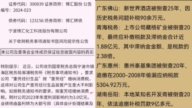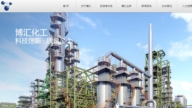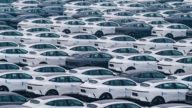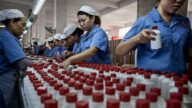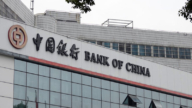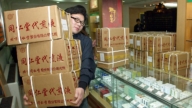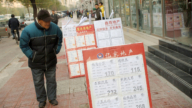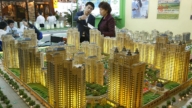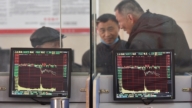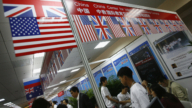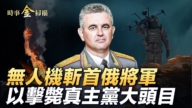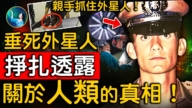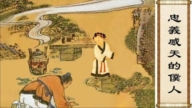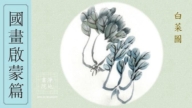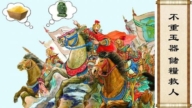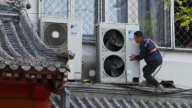【新唐人2012年12月19日讯】近两天中共中央召开的经济工作会议,释放了一个重要的信号,那就是:“城镇化”将是明年中共当局经济工作的重要抓手。专家指出,自中共执政以来,中共把中国农民变成了二等公民,而在中国经济面临举步维艰,社会矛盾一触即发的情况下,又采用“扩大城镇化”的办法,把农民赖以生存的土地用来生钱,将会使失去土地而又文化层次不高的农民再次面临生存问题,会更加激化社会矛盾。
下任中共国务院总理李克强,在面向省部级官员的培训班上,曾作出如下说法,他说:潜力巨大的中国城镇化,是中国经济增长最强大、最持久的内生动力。
据《中新网》报导,多位专家16号表示,这象征新型城镇化,被定位为中国经济新的增长点,是改革的重要红利,也将是明年经济工作的重要抓手。
北京《国情内参》期刊首席研究员巩胜利指出,中共的这一举措,是再一次把不可再生的土地资源变成更多的金钱,在农民面临巨大经济压力的同时,再一次牺牲农民的利益。
北京《国情内参》首席研究员巩胜利:“政府收购农民的土地,一亩地大概几千块钱,上万块钱,城镇化以后,房地产大概一平米几千到上万,政府反复炒买土地,变成城镇土地了,就翻了上千倍,上百倍。”
巩胜利指出,中共政府把农民土地变成城镇土地,农民将无处可去。
巩胜利:“农民没有了土地怎么样生存,这是个很关键的问题,这个经济会议,对于2013来讲,是中国的矛戳中国的盾。农民没有了土地,进城他去干什么?他能干什么?”
李克强在会议上还说,扩大城镇化将带来投资的大幅增长和消费的快速增加。但是,美国“纽约城市大学”经济学教授陈志飞认为,扩大城镇化是李克强为了缩小中国的贫富差距和低迷楼市的无奈之举,只能是画饼充饥。
美国“纽约城市大学”经济学教授陈志飞:“但实际上,流动人口、买房的人口还不到1%,造成的结果可能是使资源更加浪费,更多的钱可能会浪费在一些表面光鲜的工程上,因为农村人口进城找不到工作,或小孩子得不到上学的机会,各方面配套的工程达不到预期的效果,那么这些常驻的人口毕竟造成不满,甚至造成一些社会矛盾的突出。”
陈志飞说,中国的贫富差距,达到了相当于非洲那些完全依靠外援的畸形经济一样,是因为中国的特权阶层借改革开放之名,大肆攫取国家资源、搜刮民脂民膏造成的,只要中共在台上,这个差距只会扩大,中共想靠扩大城镇化来缩小贫富差距,只能是痴人梦想。
陈志飞:“如果想让他们来拉动内需,其实是痴人梦想,因为这些民工或者是这些刚涌入城市的人,他们不可能去买那些昂贵的奢侈品,也不会像富豪一样去购买多处房产,或者像中共党官一样去挥霍国家财产,游山玩水,甚至搞二奶、三奶的来扩大内需。”
那么,在不包括中国权贵隐性资本的情况下,代表社会公平的“基尼指数”,中国却已经超过0.6,远远高于联合国的底线0.4,据陈志飞研究,中国的基尼指数已经排在全球前十位。
专家们认为,不扩大城镇化建设,中国贫富差距越来越大,已经危及到中共的执政地位,城镇化建设又可能导致失地农民的一系列问题,加上城镇化的过程中,特权阶层又会搜刮民众一把,暗藏着更深层的危机。
采访编辑/刘惠 后制/钟元
Farmers having to sacrifice land for expanding urbanization
triggered a big reaction
Over the past two days the Chinese Communism Central
Economic Conference made it clear that economic work will start with “urbanization" next year.
Experts say, since the Chinese Communist Party(CCP) came
to power, Chinese farmers became second-class citizens.
While China’s economy is facing social conflicts everywhere,
now the regime wants to expand urbanization.
This will cause the farmers to lose their land which they rely on.
Again farmers will face the challenge of surviving.
Thus, more social contradictions are intensified.
CCP Premier Li Keqiang said in training for provincial officials,
“the huge potential of China’s urbanization will bring the most
power and lasting motivation for economic growth.”
Chinanews reported that experts stated on Dec 16th that new
urbanization is positioned as a growth point in China’s economy.
It will also be the important starting point
for next year’s economic work.
Gong Shengli, principal researcher of
“Internal References Of National Conditions” pointed out,
this initiative of the CCP once again changed the
non-renewable resources of the land to more money; and sacrificed the interests of farmers.
Farmers who are already facing enormous
economic pressures.
Gong Shengli: “The government bought the farmers’ land
for thousands of yuan per acre, or tens of thousands of yuan.
After urbanization, for real estate, it is about a few thousands
to tens of thousands of yuan per square meter.
The CCP repeatedly scrambled to buy land, and the previous
one acre of farmland changed into urban land.
This made it worth many hundreds or thousands of times more."
Gong Shengli pointed out that the CCP government changed
the farmers land into urban land, leaving the farmers nothing.
Gong Shengli: “How could the farmers survive
without lands? This is the most critical issue.
The 2013 economic conference is using a Chinese spear
to poke a Chinese shield.
After the farmers lost their land, and went barefoot into the city,
what will they do? What can you do?"
Li Keqiang also said at the meeting that urbanization increase
will bring a rapid increase in investment and consumption.
However, Chen Zhifei, a professor of Economics in New York
City University believes expanding urbanization is a way for
Li Keqiang to narrow the gap between rich and poor and change
the downturn in the property market, but it’s an illusion.
Professor Chen Zhifei: “For the floating population, less than
1% bought houses, resulting in more wasting of resources.
More money may be wasted in some superficially
outstanding projects.
However the rural population could not find a job in the city,
their children could not go to school.
Related projects could not reach exptected results. The residential
population will have dissatisfaction, causing even more conflicts."
Chen Zhifei said, the gap between rich and poor in China
had reached a level of deformed economics.
Becoming totally dependent on foreign aid like in Africa.
The privileged class grabbed national resources and
people’s wealth in the name of reform and opening up.
This gap will only expand as long as the CCP exists.
It is only an illusion to narrow the gap between
the rich and the poor by expanding urbanization.
Chen Zhifei: “If you want them to boost domestic demand,
it is only a dream.
These migrant workers, or people who just walk into the city,
cannot buy those expensive luxuries like more properties.
Or squander state treasures, or go on sightseeing tours, or
take mistresses like CCP officials to expand domestic demand."
The Gini index is a measurement of income distribution of
a country’s residents to define the gap between rich and poor.
Zero equals perfect balance of income distribution.
Excluding the recessive capital of Chinese dignitaries, the Gini
index representing social justice has exceeded 0.6 in China.
This is much higher than the bottom line of
the United Nations of 0.4.
According to Chen’s study, China’s Gini index
has been ranked in the top ten in the world.
Experts believe that, if not expanding urbanization,
the gap between rich and poor will grow in China.
This has already threatened the CCP’s ruling status.
But urbanization may cause a series of problems
for the landless peasants;
in the process of urbanization, the privileged class will
plunder the people further, so a deeper crisis is hidden.


